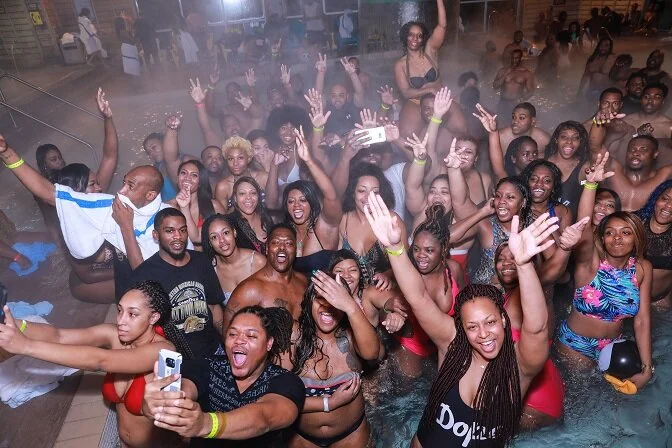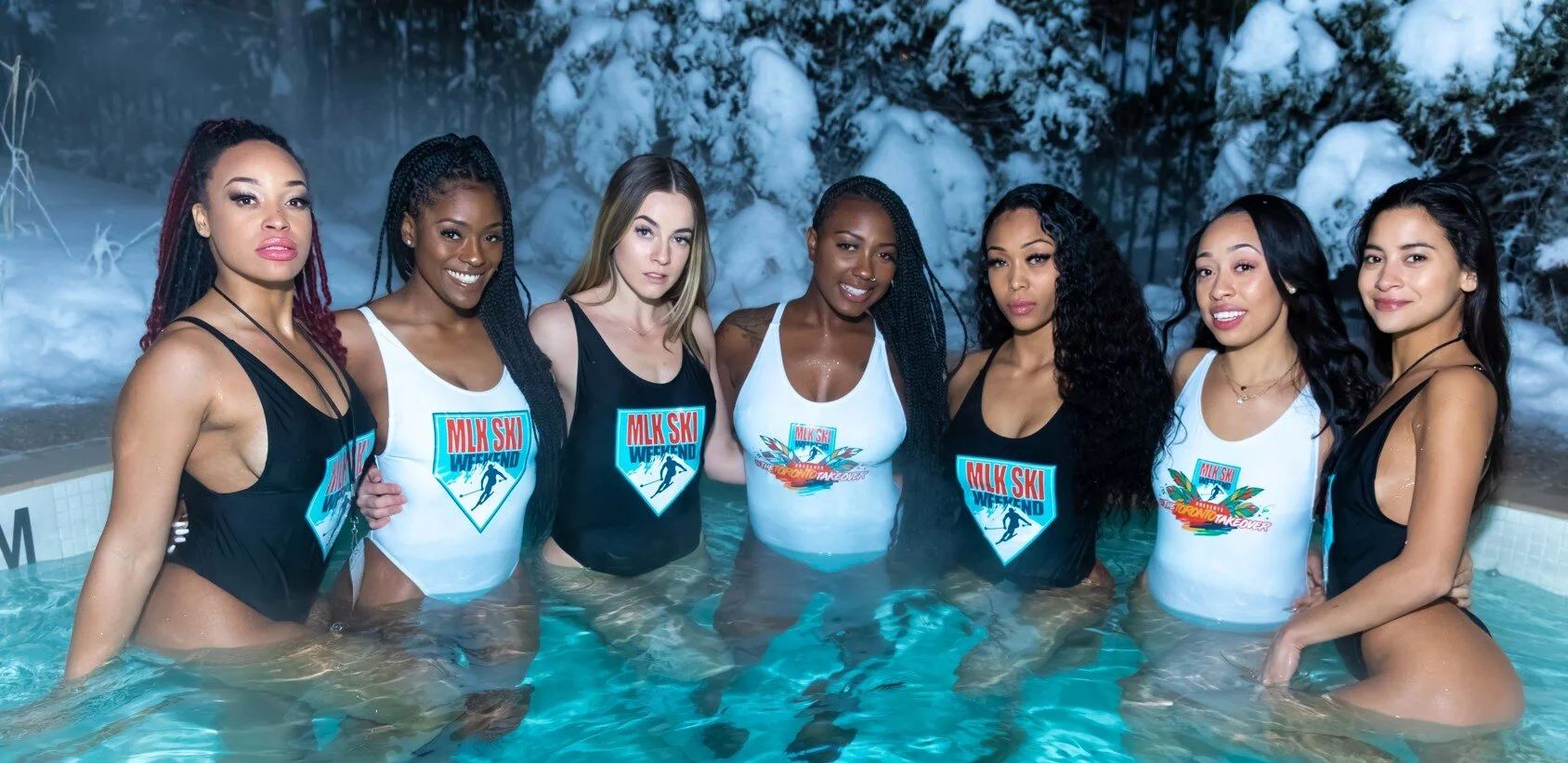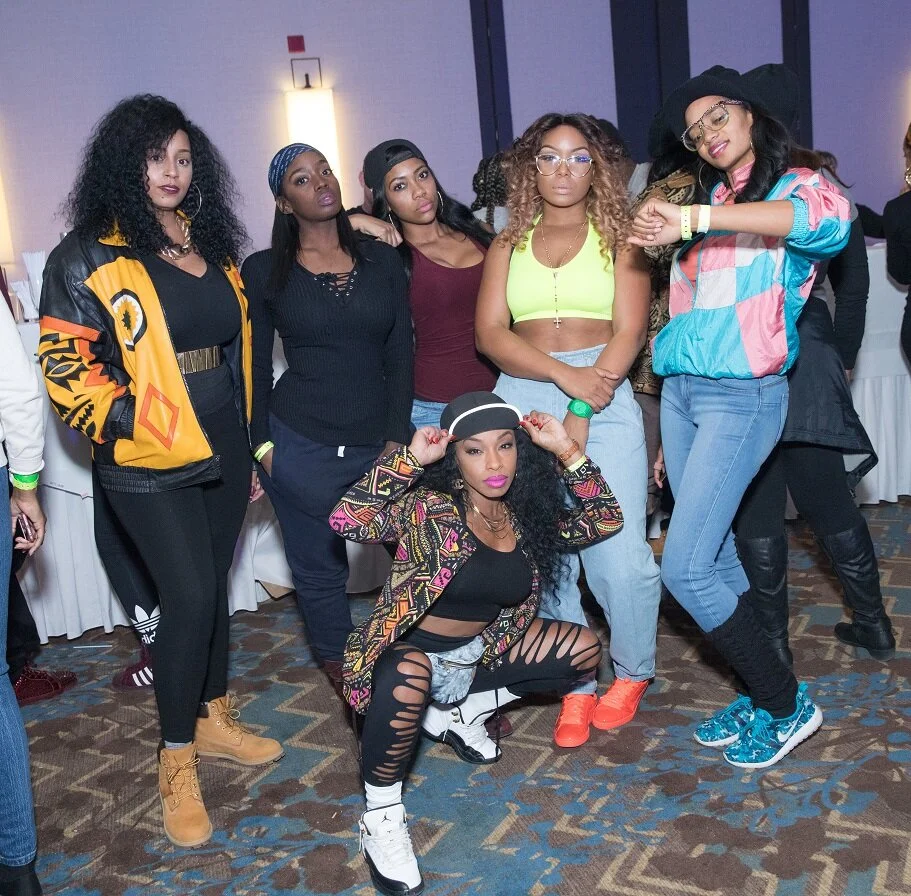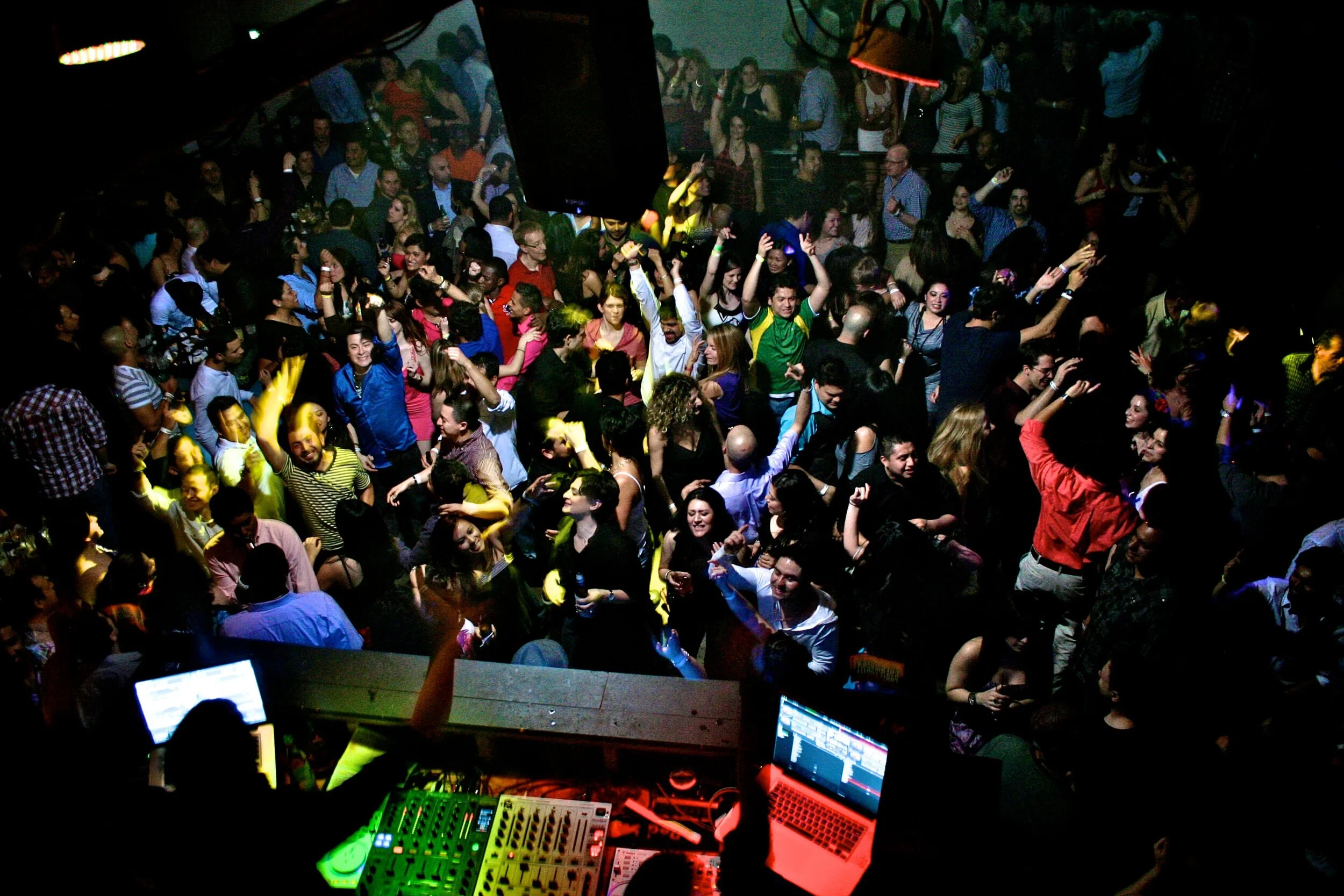Black Parties For Black Communities
In the 1980s, you could get into a house party in north London for just 50 pence. Inside, you’d knock back drinks – no hard liquor, just Babycham and Cherry B – listen to blues and Lovers Rock, a genre of reggae specific to London, and dance with guys dressed in Cecil Gee suits with gold-tipped shoes. For young Black people, these house parties were worth sneaking out for, fooling your parents by perfecting the art of making your bed look like it was still being slept in.
Forty years later, Toyin Adekale, a Tottenham-born party goer and Lovers Rock singer still remembers those nights fondly.
“The licks were worth it if you got caught by your parents,” Adekale laughs. “I keep telling one of my friends that we have to be friends forever because of the stories she could tell. She was always there with me sneaking out.”
Last year, blues parties like these were brought back into focus by Steve McQueen’s short film Lovers Rock, which followed the story of two people who meet at a West London house party. gal-dem spoke to some of the now sixty-somethings who frequented these parties and, like Adekale, they remember those nights fondly too. Most young people make their first meaningful memories on nights out, but Black people in the 70s and 80s were largely unwelcome in nightclubs. So, unlike their white counterparts, house parties were really the only safe havens for young Black people to have fun in.
Growing up in Reading, brothers Anthony and Abraham Osho and best friend Sean found going out uninteresting. “The experience of being Black in Reading from a nightlife perspective is non-existent. There was really nowhere to go and if you wanted to go somewhere, it was a bit shit. It just wasn't the right vibe.” says Osho. “That feeds into how we ended up being like, we need to start our own thing.”
So, together they threw their first party under the name Love at First Vibe in 2017. “The first party was proper lo-fi and I think the theme was ‘OVO Appreciation’,” Osho recalls. “We had it at a place called Tipsy in Dalston, but underneath. You know those underground places that used to be all down like Kingsland Road? It had a massive fan in the back but it popped off, it was so good.”
Over the past four years, Love at First Vibe has expanded to include “MSN Generation” parties, which feature 00s hip-hop and R&B, “Jollof vs Jerk” which sees a mix of Arobeats, bashment and dancehall, as well panel discussions on topics like the effects of social media or COVID-19 on the music industry. “It was so great to come to London and receive a lot of love from London’s Black community,” says Osho.
Despite the obvious demand for parties like this, mainstream nightclubs have been largely unreceptive to the idea. In 2015 London’s West End nightclubs were exposed for their racist door policies; from charging Black women double the entrance fee as white women, or not letting Black people in at all. It sparked an outpouring of people sharing their similar experiences, as well as protests outside DSTRKT in Soho. Form 696, a risk-assessment document created by the Metropolitan police, meant that many Black-run events were blocked or shut down in London. Until it was scrapped in November 2017, Form 696 meant that organisers had to provide details of the events they were hosting, from their clientele’s ethnicity to the genre of music that would be played.
Even without official roadblocks like Form 696 in place, organisers like Osho and Sonubi are still facing push back. According to the LAFV organisers, venues are still operating racist policies, recounting a months long back-and-forth with a promoter about the race of their clientele. “When we actually did the party, they were like, this is such a nice crowd, like in almost an ‘I didn't realise that you could bring 130 Black people into a space, and they would just vibe and there would be no issues’ way.” Anthony explains. “This happened in Hackney. Think about what the demographic of Hackney is, but still we were asked so many questions. We were fobbed off, they pushed back, they cancelled on us at first.”
Jojo Sonubi, the founder of London-based parties Recess, faced similar issues to LAFV before he started running regular parties in 2017. “When I pitched to these venues I’d be like ‘it’s a hip-hop-R&B-dance-Afrobeats party’. That was the language you had to use back then, venues weren’t open to just Afrobeats. In 2017, it started to open up a bit more, with the popularity of artists like WizKid. It made people – in terms of white people – understand the genre,” Sonubi explains. “But venues would say ‘We already have a hip-hop night here.’ No disrespect to them, but how many techno and house nights are there and you can only have one hip-hop night? Especially in Hackney, which is one of the blackest boroughs in London. You can’t be saying that you promote diversity when your programming doesn’t match up.”
Building community has always been at the forefront of Black organised parties and London’s Black LGBTQ+ community are no different. From DIY nights to established nightclubs, there are events with enduring histories across the city, which remain documented by archives like Black and Gay in the Day. In recent years still, there’s been a steady stream of Black organised parties which have followed in their footsteps and given space to London’s queer Black community. There’s BBZ – the Black queer art and DJ collective co-founded by Nadine Davis and Tia Simon-Campbell, who used to put on a mixture of exhibitions and parties at Deptford’s Buster Mantis – and Akeil Onwukwe-Adamson’s Queer Bruk events.
The demand for these parties is as big as ever according to Onwukwe-Adamson, who is putting together the line-up for his first post-lockdown party in June. “I was scared that no one would come because it’s the first Saturday after lockdown ends in June, but we've already sold 350 tickets. It's crazy. The capacity of the venue is like 450,” he says. “There is definitely demand. People have been tagging us on Twitter, like if Queer Bruk is not the first event I'm going to post-lockdown, I'm not gonna be happy.”
Like the other organisers, community is at the forefront of what Queer Bruk. “I try to work with queer people of colour as much as possible. All of our artwork is designed by a queer Nigerian friend of mine and almost almost all of our DJs are queer too. So it's not just bringing the community together, it's also about sustaining the community,” explains Onwukwe-Adamson.
When the pandemic hit, the demand for Black spaces didn’t dwindle and like most organisers they had to go online only. Love at First Vibe started creating playlists but, most notably, demand was met by No Signal – an online radio station and self-described ‘#blackradio’, created by Sonubi and his brother when restrictions meant that Recess’ parties had to be put on pause. The Guardian branded the station a “social media sensation”. Now, with venues set to officially open again on the 21st of June, organisers are already thinking about their next physical events.
Despite the success of their pandemic ventures, opportunities post-COVID are looking bleak due to venue closures. According to analysis by VICE and Music Venue Trust, since 2016 there have been 154 venue closures with 390 other venues at risk. “The Curtain in Shoreditch is closing and the Ace Hotel,” Osho says. “It would be good to be in a position where we could actually own a venue because a lot of what we do requires space.”
Combining the difficulty of finding venues that welcome largely Black clientele and those that do, closing organisers are unsure of what will come next. For Sonubi, preserving community space is more important than nightclub real estate.
“We definitely need to be setting up camp, especially in places like Brixton, but they’re owned generationally,” he says. “They’ll secretly own a strip [of venues] and then rent them out to others who compete with each other. That’s the property game man. Culturally it's worth it but commercially it’s a risk. You’re always going to be operating at a thin edge, especially times like now.”
So their focus remains on making sure there’s a safe space for other young Black people to follow in their footsteps. The Love at First Vibe organisers have their sights set on encouraging other young promoters to follow in their footsteps by having spaces of their own, whether that be in London or for people growing up as they did outside of the capital.
“We would want to work with them, so they could go to people that actually look like them and understand what they're trying to do,” says Osho. “We’re not going to ask what genre of music they’re playing or what crowd to expect.”
Sonubi is less focused on buying a club and, in the future, sees himself opening a café instead. “A cafe would be gratifying, because I know you can come here and chill. I want it to be like this home away from home kind of thing,” he says, reeling off a list of teas.
Forty years on, Adekale is grateful for the community she built from Lovers Rock as a genre and the parties that came with it. As we talk, she’s struck by the realisation that she has many 40-years-long friendships all stemming from that time – from producers to other party-goers – as well as other more physical mementos.
“Music was definitely the food of love, especially Lovers Rock. A lot of our kids were born out of it,” she says laughing. “It didn't feel revolutionary at the time because we were in it. It was like seeing the woods for the trees. It's only since we stepped away that we’re realising that we were the woods and the trees. We didn’t know we were creating a story, we were just doing what we were doing. It's our story.”



